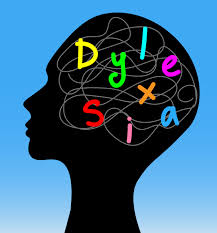
Early dyslexia detection in children will boost academic performance, say experts
Today is International Dyslexia Day, which Nigeria is celebrating together with the rest of the world. Experts have offered strategies for addressing reading difficulties in Nigerian children who are affected by this learning condition.
In order to improve kids' academic performance, they promoted early detection and therapy for pupils with the diseases.
Every year on October 8, we mark International Dyslexia Day.
The primary learning disabilities that dyslexia affects are reading and writing, according to the British Dyslexia Association. It clarified how information processing and reading abilities are impacted by dyslexia.
“Dyslexic people may have difficulty processing and remembering information they see and hear, which can affect learning and the acquisition of literacy skills”, the group noted.
Speaking at a celebration of the day held by the Women Foundation for Improved Living Standards in partnership with Nwafor Orizu College's Primary School, Anambra State, Prof. Ifeoma Udoye, a sub-dean of Chukwuemeka Odumegwu Ojukwu University's Faculty of Arts, stated that there were scientifically proven ways to treat the illness.
She emphasised the need of increasing public awareness of the condition, pointing out that millions of children are impacted globally.
Professor of Linguistics Udoye stated that treating dyslexia in youngsters requires early detection.
The don also outlined other crucial techniques for identifying children who are at risk, such as keeping an eye on linguistic development and noting issues with rhyming and pronunciation, noticing difficulties connecting printed text to languages by identifying individual letters, and being aware of family history as dyslexia and other language-related challenges could be genetically inherited.
According to the professor, dyslexia is a reading impairment that affects a child's ability to recognise and manipulate linguistic sounds or understand new words rather than being an illness.
She claims that one in five kids have dyslexia, that 80–90% of kids with learning problems are classified as dyslexic, and that kids who don't receive a diagnosis will continue to have the disorder into adulthood.
She brought up the fact that many kids with the illness who go undetected struggle in school and are mistakenly thought to have low IQs.
She mentioned that low self-esteem, anxiety, and sadness are some of the accompanying repercussions.
Udoye emphasised the importance of early detection and intervention, citing data indicating that 70% of dyslexic children who got educational support in kindergarten or first grade went on to become proficient readers and manifested other hidden talents.
The professor urged legislators, educators, parents, and members of the government at all levels to work together to develop and execute national policies that will address dyslexia in children.
Hon. Obiora Nwachukwu, Senior Special Assistant to the Governor of Anambra State, commended the organisers of the event and stressed the significance of ongoing public awareness campaigns to battle the stigma attached to dyslexia.
He gave guests the assurance that the Anambra State Government is dedicated to helping youngsters in the state who suffer from dyslexia.
A different speaker, Mr. Ezenwanne Obinna, emphasised the prevalence of dyslexia in Nigeria, claiming that the disorder affects 32 million Nigerians, including school-age children, and that there is a 30–50% possibility that it is carried genetically.
He stressed that people with dyslexia may nevertheless be successful, mentioning celebrities like Jennifer Aniston, journalist Anderson Cooper, and entrepreneur Richard Branson as examples.





